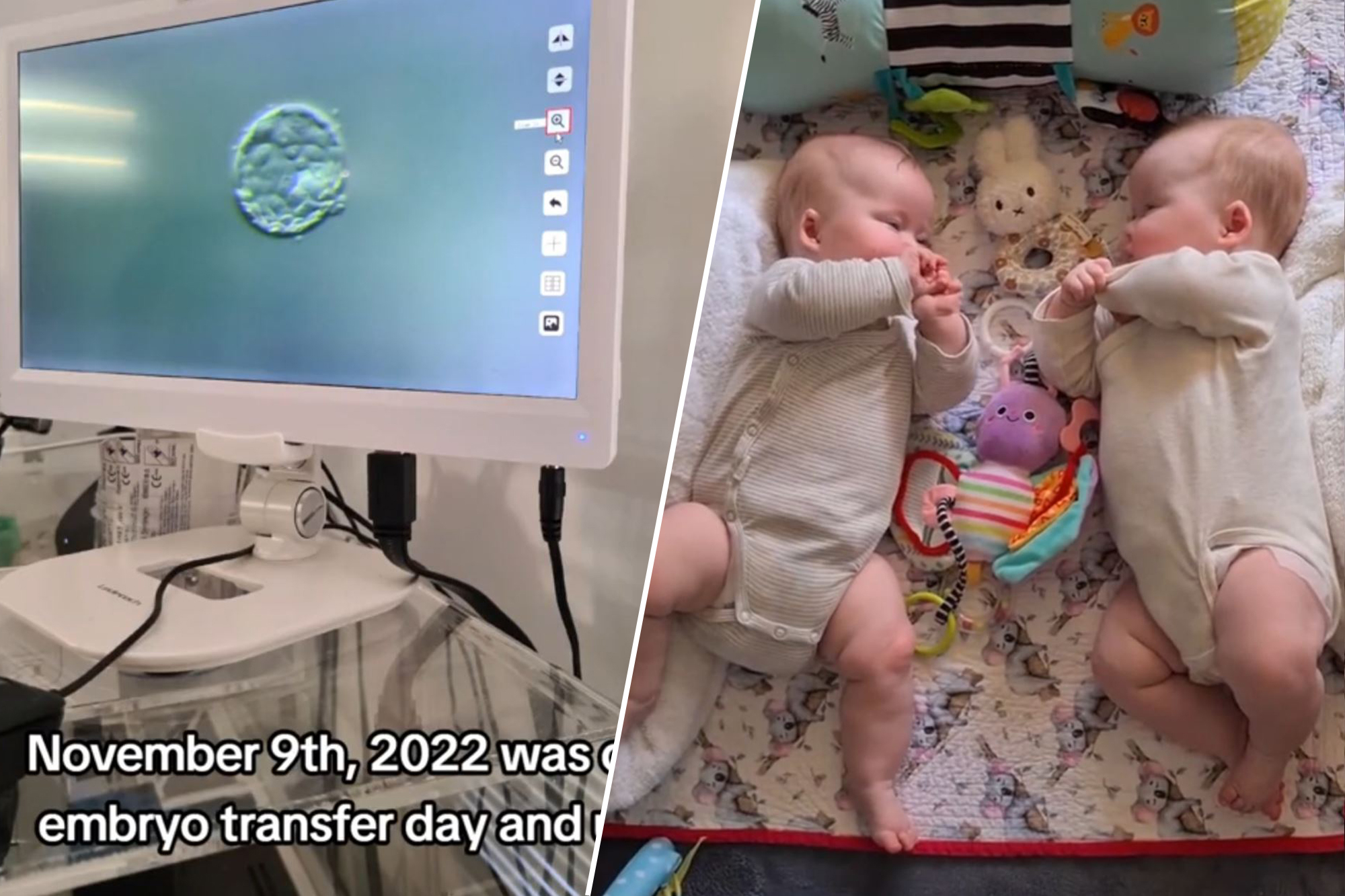Blood
Twins With Rare Disorder Saved by In Utero Blood Transfusion: ‘So Beautiful Seeing Them From Where They Were’
Two newborn twins who were at risk of dying of heart failure in utero have been saved by a team of doctors in Australia.
Marni Cochrane had been trying for years to start a family and was finally pregnant with twins when she was told her children had developed Twin Anaemia Polycythaemia Sequence, or TAPS, which is a rare and potentially life-threatening medical condition, the Australian Broadcasting Corporation (ABC) reports.
The twins were conceived through in-vitro fertilization (IVF) where only one embryo was implanted but it split in two. Cochrane was at Gold Coast University Hospital when her twins were diagnosed. She was then taken to Mater Mothers’ Hospital at South Brisbane where she and her children were treated by maternal-fetal medicine specialist Dr. Glenn Gardener.
Gardener says that TAPS occurs in about 1/20 cases of identical twins and is, according to Johns Hopkins Medicine, a disorder of the placenta where blood flows unequally between unborn twins.
In some cases, one child will have excess red blood cells, which is hard for their heart to pump through their body, while the other will have fewer red blood cells, which leads to less oxygen flowing through their system and possible anemia.
Gardener tells ABC that the condition can lead to heart failure for both children “for different reasons.”
“One because it’s struggling to push blood around, the other one because it’s pushing the blood around too fast,” Gardener explains.
Using ultrasound, Dr. Gardener was able to guide a needle through the mother’s abdomen into one of the twin’s umbilical cord veins to give them a transfusion of the universal O-negative blood to treat their anemia. For the other twin, he performed what’s called a “partial exchange transfusion” and extracted some of their blood and replaced it with saline.
“This is only the second time I’ve done it in a set of twins,” Dr. Gardener told ABC. Just three weeks after the first procedure, Cochrane returned to the hospital for another at 32 weeks pregnant. Dr. Gardner again performed his procedures and just two weeks later, the twins were finally born on June 14.
Billie and Poppy came into the world six weeks early and had to spend 10 days in the hospital’s neonatal intensive care unit. They are now five months old, and their mother says they are doing well.
“They just amaze me every day…They’re an absolute joy. I’m just so happy,” Cochrane told ABC. “It’s so beautiful seeing them from where they were — so fragile and tiny. They’re robust and healthy. I’m super proud of them and I love them to bits.”
Nov. 17 is World Prematurity Day, which is held to raise awareness of premature births and the related challenges and fatalities that can occur along with the ways to mitigate and prevent them.
Cochrane’s family’s success story is one of many made thanks to advancements made in the field of preterm births.

